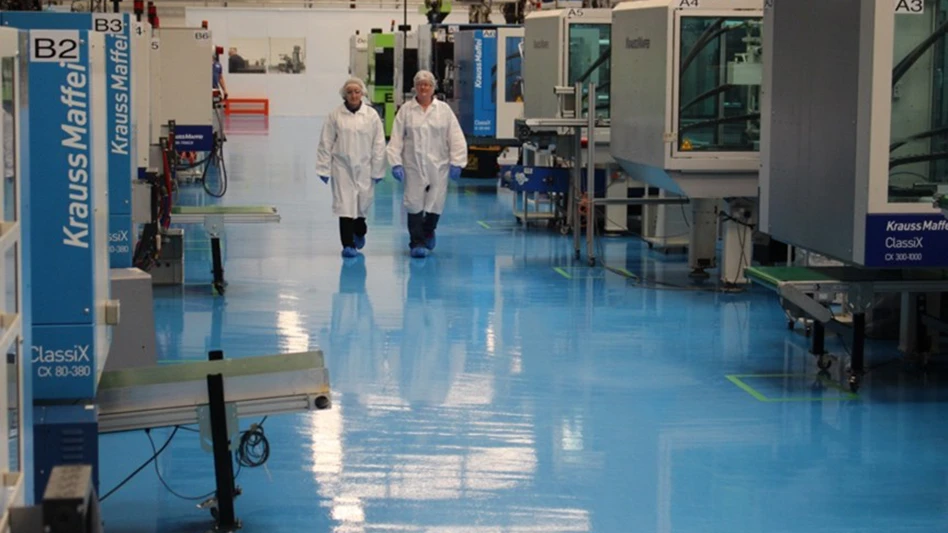
Laurel, Maryland – Building on its substantial advanced mechanical fabrication capabilities, the Johns Hopkins University Applied Physics Laboratory (APL) in Laurel, Maryland, has established a center of excellence to guide major advances in additive manufacturing, commonly known as 3D printing.

The profound transformation caused by additive manufacturing is being accompanied by a wave of research on new materials, the potential integration of electronics into devices as they are made, the printing of biological structures and the emergence of nano-engineering.
The center will initially focus on significant technical challenges that are currently preventing more widespread adoption of additive manufacturing technologies in the Defense Department and also on topics of interest to the intelligence community. Other future initiatives will include printed microelectronics and bioprinting. APL plans to serve as a leader in these important areas.
 “For many years, we have been at the forefront of advanced manufacturing technology,” said Jim Schatz, who leads APL’s Research and Exploratory Development Department. “The investments we are making in additive manufacturing will place us among the leaders in this area nationally, and allow us to rapidly develop and deliver game-changing capabilities to our government sponsors.”
“For many years, we have been at the forefront of advanced manufacturing technology,” said Jim Schatz, who leads APL’s Research and Exploratory Development Department. “The investments we are making in additive manufacturing will place us among the leaders in this area nationally, and allow us to rapidly develop and deliver game-changing capabilities to our government sponsors.”
The center will engage in the following activities:
- Additive manufacturing design and fabrication services for prototypes and limited volume runs, in support of sponsor programs
- Research on new design and fabrication methods, and new materials for additive manufacturing
- Research on the characterization, testing and evaluation of additive manufacturing processes
- Exploring the innovative applications of embedded electronic circuits
- Pioneering the use of additive manufacturing in the creation of biological parts and organs
- Serving as a trusted agent for additive manufacturing test and evaluation
- Serving as a trusted advisor on application of additive manufacturing in Department of Defense and intelligence community projects
The new center builds on APL’s expertise and capabilities in metal and polymer additive manufacturing, mechanical design, materials science, physics, intelligent systems and bioengineering. The Lab plans to invest in additional powder bed fusion and hybrid additive-subtractive systems.
The center will also collaborate with other organizations in the Hopkins Enterprise, including the Johns Hopkins Whiting School of Engineering and the Johns Hopkins School of Medicine, to leverage their expertise and provide potential research opportunities for students.
Source: The Johns Hopkins University Applied Physics Laboratory LLC
Latest from Today's Medical Developments
- Boston Scientific to acquire Penumbra, expanding cardiovascular portfolio
- Star Cutter introduces Double Pilot Reamer
- #80 Manufacturing Matters - Machining Strategies to Save Time and Improve your Process for MedTech Components with Kennametal Inc.
- Real-world parts and expert manufacturing advice
- Experts discuss the latest in toolholding technology
- How permanent magnets are powering medical innovation
- Forecasting the year ahead in design and manufacturing
- Tecomet, Orchid Orthopedic Solutions announce merger agreement





